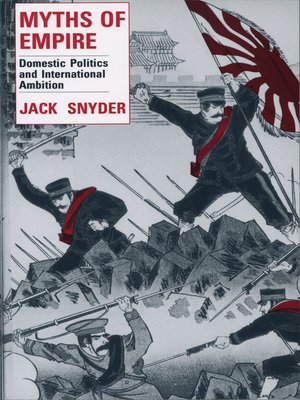Myths of Empire
ebook ∣ Domestic Politics and International Ambition · Cornell Studies in Security Affairs
By Jack L. Snyder

Sign up to save your library
With an OverDrive account, you can save your favorite libraries for at-a-glance information about availability. Find out more about OverDrive accounts.
Find this title in Libby, the library reading app by OverDrive.



Search for a digital library with this title
Title found at these libraries:
| Library Name | Distance |
|---|---|
| Loading... |
"Myths of Empire offers the best-developed theory to date of the domestic sources of international conflict and security policy.... Snyder has taken a major step toward ending the theoretical impoverishment of the study of the domestic sources of international conflict."― American Political Science Review
Overextension is the common pitfall of empires. Why does it occur? What are the forces that cause the great powers of the industrial era to pursue aggressive foreign policies? Jack Snyder identifies recurrent myths of empire, describes the varieties of overextension to which they lead, and criticizes the traditional explanations offered by historians and political scientists. He tests three competing theories—realism, misperception, and domestic coalition politics—against five detailed case studies: early twentieth-century Germany, Japan in the interwar period, Great Britain in the Victorian era, the Soviet Union after World War II, and the United States during the Cold War. The Resulting insights run counter to much that has been written about these apparently familiar instances of empire building.







